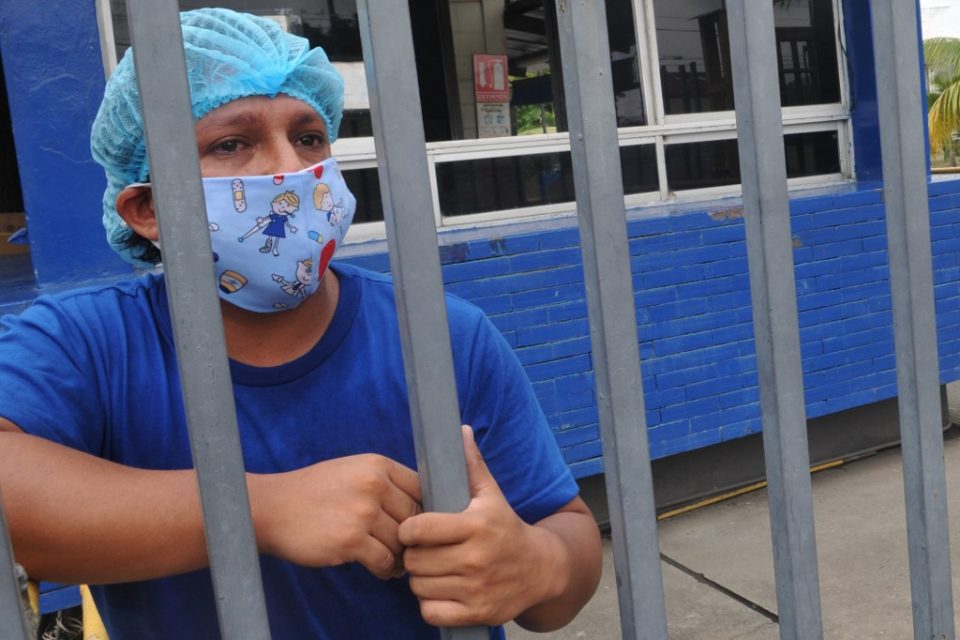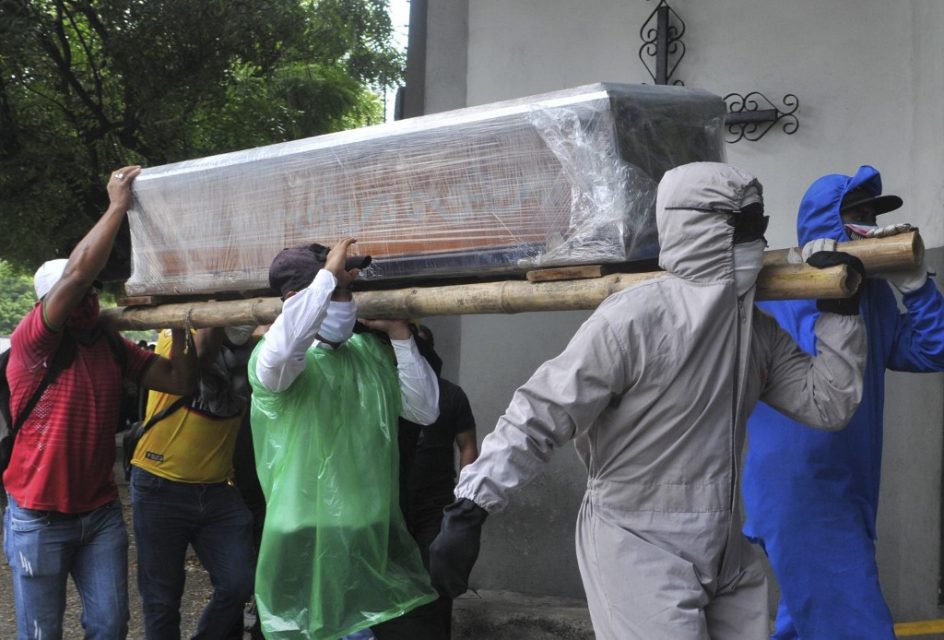
by Xavier LETAMENDI
Agence France Presse
GUAYAQUIL, Ecuador (AFP) — Darwin Castillo’s father died in Guayaquil during the coronavirus pandemic that has caused the Ecuadoran city’s health system to collapse.
But when Castillo went to the overwhelmed morgue to recover him, he opened a body bag to find the person inside wasn’t his father.
Two weeks have passed and he still hasn’t found the body.
Guayaquil, Ecuador’s largest city, is the capital of Guayas province has recorded roughly 70 percent of the country’s more than 8,200 coronavirus cases.
Castillo, 31, who works in a factory making plastic products, ended up returning the coffin he had purchased to the funeral home.
“I don’t blame the hospital or the morgue. There were people dying at the entrance,” he told AFP.
“I would like my dad to appear so I can give him a Christian burial, to give a bouquet of roses to my old man.”
Castillo’s father, Manuel, was 76 and a dialysis patient, who died on March 31 due to a catheter obstruction.
His son went to the Los Ceibos hospital — the largest in Guayaquil, which has been dedicated to coronavirus cases — two days later to recover the body.
When he got to the morgue he found it filled with corpses and paid an employee a $150 bribe to recover his father’s body among some 170 that were piled up.
Among the abundance of death, authorities installed a refrigerated truck outside the morgue to hold 46 bodies.
When Castillo opened the body bag with the wrong person inside, he was surprised to find “a man with a mustache and different clothes.”
“The gentleman had the wristband they give you when you enter the hospital and it said Rodriguez,” Castillo added.
So the morgue suggested he search among the bodies, including COVID-19 victims.
“If there hadn’t have been this problem, I would have searched from dead to dead for my dad, but I would have been exposing myself” to the virus, he said. So he refused.

– ‘Incomprehensible’ –
The chaos in hospitals and funeral parlors — in addition to the government lockdown — means many bodies remain in homes for days before being collected.
The government, which over the last few days has collected 1,400 bodies from homes and hospitals in Guayaquil, uses a website to notify individuals of corpses’ burial plots.
Two cemeteries have been expanded for the COVID-19 dead.
Although Castillo entered his father’s details, his name didn’t appear on the website.
Some people are blaming the government for the chaos.
“The family has the right to know where their dead relative is. The families are saying that the dead arrive with changed identities or men arrive when they’re women,” lawyer Hector Vanegas told AFP.
Vanegas, who is representing a group of Guayaquil residents preparing a lawsuit against the government, is compiling a list of those affected by the confusion — and said he had already received 190 calls.
– ‘An ordeal’ –
Moises Valle, a 37-year-old pharmaceutical employee, also lost his father, who died of a heart attack in Teodoro Maldonado Carbo hospital.
When Valle filled out the forms to claim the body, he found it had been sent to another health care facility without his consent.
“This day an ordeal began because I couldn’t claim the body. Until yesterday my father’s name hadn’t appeared on the website,” Valle told AFP.
He had acquired a plot in the neighboring town of Duran and was prepared for the burial, but had to cancel the service.
Dayana, who chose not to give her last name out of fear of reprisal, works in a funeral home. The last days of March were stressful and traumatic.
“I came home dead (from tiredness), crying over everything I saw, rotting corpses, with worms,” she said.
Every time she went to the hospitals, she would take four coffins, but it was never enough. She said she can still hear the cries for help.
“I need a psychologist, and I need one urgently given all the rubbish I’ve seen,” she said.
The 29-year-old said many corpses were marked as unknown, adding in the morgues identification tags are changed and bodies released without the correct documentation.
It means for many people struggling with the pain of losing a loved one, they must also deal with the uncertainty of not knowing where the body is.
© Agence France-Presse







